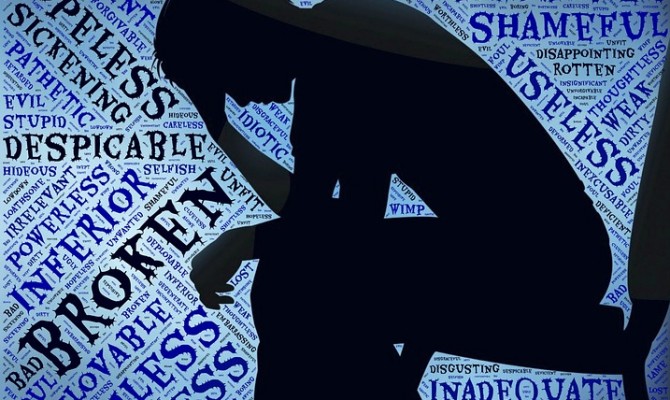Curious about what clinic depression means? What are clinical depression and its depressive signs and symptoms? Is clinical depression manageable? How does major depressive disorder affect the health of people?

In this article, let’s discuss and understand more of this clinical depressive symptom.
For someone with Systemic Lupus Erythematosus, life is not at all easy. With intermittent flare-ups, remissions, and the ambiguity of what today and the next will bring, it is not uncommon to feel frustrated, angry, and with clinical depression tendencies. You may question everything and mourn and miss the life you once had before lupus when you’re hurting. When melancholy comes in, counseling, support groups, and other treatment options are necessary to help keep individuals with lupus surviving and thriving. Once these destructive depressive disorder feelings become longstanding, the matter of melancholy becomes more serious and may develop into a severe form called major depressive disorder.
Dealing with distress and major depressive disorder is difficult. By its very nature, major depressive disorder is “great pain, acute suffering, and extreme misfortune,” said Casey Radle, LPC.
Different Clinical Depression Symptoms To Be Mindful Of
You can identify a person has a clinical depression or major depressive disorder when he is constantly irritable, has low energy, and is always sad, depressed, and crying for over several weeks. There will be clear damage to their mental health. These mental disorders and clinical depression symptoms may also be present:
- Always feeling hopeless
- Sleeping too much or too little
- An increase or decrease in appetite
- Feeling guilty or remorseful
- Feeling worthless and insecure
- Difficulty focusing and making wise decisions
- He no longer enjoys the usual things he used to do
- Decreased sexual interest and performance
- Repeated suicidal thoughts
This situation causing major depressive disorder may result from lupus, such as medications used by the individual, or other clinical depressive factors in his life which may not be associated with lupus. People who suffer from chronic autoimmune conditions often have this kind of depressive mental disorder. At times, diagnose clinical depression may not be identified in those with lupus simply because clinically depressive, and lupus symptoms can be very much the same. For instance, decreased energy and difficulty sleeping are common symptoms of lupus.
According to the American Psychiatric Association and the National Institute of Mental Health, clinical depression is a serious and debilitating illness that can result in physical health conditions and self-harm — even suicide attempts. Symptoms of clinical depression can include significant changes in appetite and weight, such as weight loss or weight gain, as well as a loss of interest in activities that were once enjoyable.
According to Deborah Serani, PsyD, “Statements such as “You’re just too thin-skinned” or “Why do you let every little thing bother you?” shame a person with depression.”
Understanding Chronic Illness And Depression And The Different Causes Of It
According to the diagnostic and statistical manual of mental disorders, several risk factors lead to major clinical depression in individuals with lupus and other mental health conditions, the most common of which is emotional instability and stress from the complications of the clinical depression. Certain medications for lupus, like corticosteroids, can also cause persistent clinical depression.
Ultimately, a lupus flare can evoke respective depression symptoms because the individual will feel very ill and also because they feel that they will never be lupus-free throughout their life. Below are other important facts that we should be aware of:
- About 60% of those with chronic illnesses also have major depression.
- Prednisone, a typical medicine for lupus, has been reported to cause such depression.
- Clinical depression may result from the mental, emotional and physical problems of the individual’s life with such a chronic illness.
- Clinic depression causes increasing anxiety and depression association that may increase physical symptoms, such as stomachaches and headaches.

The Different Effective Treatments And Antidepressant Medications For Treating People With Depression That Anyone Should Be Aware Of
Therapy
The National Institute of Mental Health strongly recommends that people suffering from major depressive disorder or someone suffering from longstanding depressive disorders such as lupus and other autoimmune conditions undergo psychotherapy. Along with the proper intake and dosage of specific antidepressant medications, psychotherapy as a treatment modality tremendously helps alleviate clinical depression and other mental disorders such as bipolar disorder or a compulsive disorder. Many of these individuals will need persuasion, as they will feel hesitant to go through psychotherapy, but don’t be. Managing your persistent depression will help you understand and accept your chronic illness, emotions, and relationships with family members, friends, and significant others.
Cognitive-behavioral therapy – a type of individual psychotherapy – is a very effective way of helping you cope with your lupus and the accompanying physical and psychological symptoms such as major depression. However, it’s vital to only undergo these treatments with a licensed health professional with experience treating depression.
Clinical Medications
Taking anti-depressants upon the orders of a mental health care professional is also an effective treatment option for the symptoms of depression, especially if done with respective therapy. For some clinically depressive patients with a low tolerance for prescription drugs, the effectiveness and progress can be seen in a matter of weeks from when they started taking them.
Clinical depression is a medical condition that can lead to alcohol abuse and substance use. It can also cause recurrent thoughts of death and a loss of interest in normal activities. If you or someone you know is experiencing these symptoms, it’s important to seek professional help to manage the medical condition and prevent potential harm.
Pain Relief
When pain is a persistent complaint of an individual with lupus or any chronic illness, he will likely develop clinical depression. Aside from such respective therapy and medication, mental health care professionals often suggest alternative ways to reduce pain. Tai Chi, Yoga, meditation, chiropractic manipulation, and acupuncture are some of the most commonly suggested alternatives. Moreover, some clinically depressed individuals find relief in herbal supplements. Physicians suggest that one should inform their rheumatologist before using these options for safety reasons.
Simon Rego, PsyD, said, “It seems obvious that experiencing a major depressive episode most of the day, nearly every day, would be required to diagnose clinical depression”
Improvement Of Sleep Patterns
Sleeping too much or too little causes many health conditions, which include this type of major depression. Sleep is vital in improving one’s mental and physical being, so one should practice a good sleep schedule. Get approximately eight hours of sleep daily. If you have increased energy throughout the day, go brisk walking late in the afternoon so you’ll get tired and then be able to sleep earlier. When clinically depressed, you must also avoid alcohol, nicotine, and caffeine. Lastly, ensure that your bedroom is comfortable, the bed with a good mattress, and the appropriate lighting.
Accept Yourself
You can’t feel bad for yourself, as it was never your intention to have lupus or develop a debilitating form of depression. Be responsible for taking care of yourself and focus on healing and recovery. Clinic depression does not develop in a day, follow-up treatment is necessary. Overcoming it is a slow but sure process if you only commit to doing what you can to live contently.
Frequently Asked Questions
What does it mean to be depressed?
What kind of disorder is clinical depression?
What can cause it?
What are the three levels of depression?
What are the top five symptoms to watch out for?
Is it hereditary?
Who is most prone to depression?
Is it considered a disease?
Does it cause brain damage?
What will happen if it goes untreated?
What term is most commonly used now?
Why does it happen?
What are the different kinds of depression?
Is it considered a brain disorder?
Is it considered a type of mental illness?
